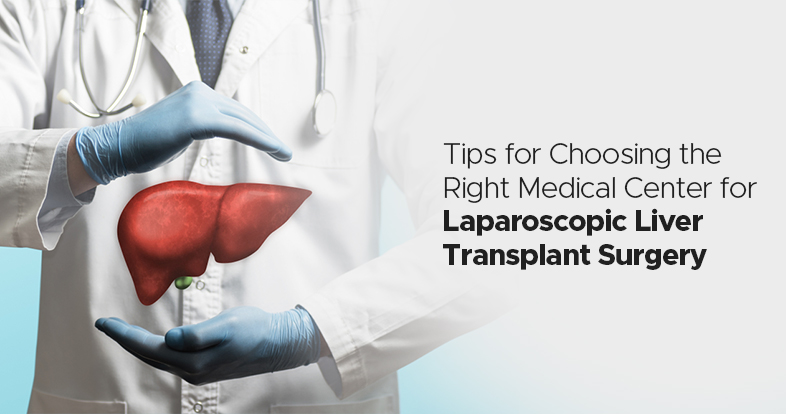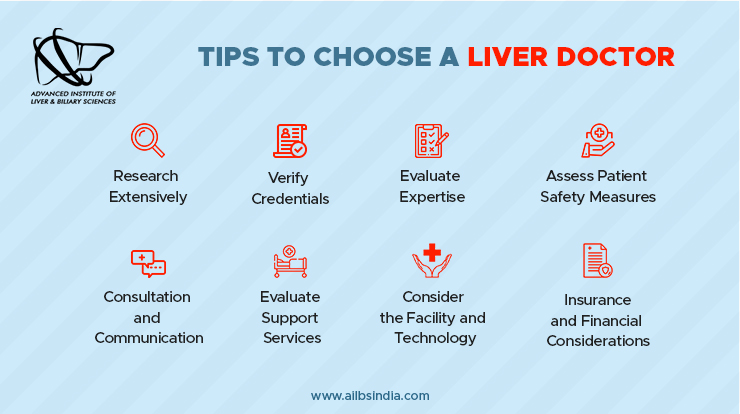
Have you ever wondered how laparoscopic liver transplant surgery can change lives? Thinking about how to choose the best medical centre and liver doctor for this important procedure? Don’t worry; we’ve got your back! In this blog post, let’s explore some essential tips together. So, are you ready to discover the key factors that ensure a successful laparoscopic liver transplant surgery? Let’s dive in!
Laparoscopic liver transplant surgery, also known as minimally invasive liver transplant surgery, is an advanced surgical technique used to replace a diseased or damaged liver with a healthy donor liver. Laparoscopic liver transplant surgery uses small incisions and specialised devices as opposed to conventional open surgery, which requires a major abdominal incision. This innovative approach has a number of advantages that make it popular with both patients and surgeons.
Let’s dive more into the main features of laparoscopic liver transplant surgery:
Laparoscopic liver transplant surgery uses a minimally invasive technique in which the surgeon makes a few small abdominal incisions to insert a laparoscope and other specialised devices. The surgeon can observe the surgery area in real-time on a monitor thanks to the laparoscope, a small, flexible tube with a camera and light at one end.
Patients receiving laparoscopic liver transplant surgery recover more quickly than those undergoing open surgery because of the smaller incisions and less damage to the body. Patients can quickly resume their everyday activities because of the minimal pain and discomfort.
With smaller incisions than open surgery, laparoscopic liver transplantation offers a lower risk of complications like infections and wound-related problems. The less danger of postoperative infections, thanks to the smaller incisions, means a quicker recovery.
The laparoscope provides:
This detailed view allows for meticulous dissection, precise suturing, and accurate placement of the donor’s liver.
Laparoscopic techniques are not only beneficial for the recipient but also for the donor during liver retrieval. Donors undergoing laparoscopic liver donation experience smaller incisions, reduced pain, and a faster recovery period.

To begin your search, look into suitable medical facilities and liver specialists. Find reputed medical facilities or clinics that have a department dedicated to liver transplants. To learn about patients’ experiences, read their reviews, recommendations, and success stories.
Ensure that the medical centre and liver doctor you are considering are accredited and certified. Check if the liver doctor is board-certified and has extensive experience in performing laparoscopic liver transplant surgeries. Verify their credentials with relevant medical boards and organisations.
Seek out a hospital with a group of skilled specialists, such as hepatologists, transplant surgeons, anesthesiologists, and nurses. Examine their specialisation in laparoscopic liver transplant surgery. A diverse team can have a big impact on how well your operation goes and how quickly you recover.
If you can, visit the medical centre or check out their official website to learn more about the Facilities and Technology they provide. Modern tools and cutting-edge technologies are necessary for laparoscopic surgeries. Make sure the hospital has the contemporary hardware necessary to deliver top-notch care.
Schedule consultations with potential liver doctors to discuss your case. Pay attention to how the doctor communicates with you. A good doctor will patiently listen to your concerns, answer your questions, and provide detailed explanations about the procedure. Clear and open communication is vital for a successful doctor-patient relationship.
Consider the support services provided by the medical centre, such as pre-transplant evaluation, post-surgery care, and counselling services. A comprehensive support system ensures that you receive continuous care throughout the entire process, from evaluation to recovery.
Check your insurance coverage and talk with the medical centre about financial matters. Acknowledge the associated costs, such as those for preoperative exams, the procedure itself, the hospital stay, the drugs, and any postoperative follow-ups. Select a medical facility that collaborates with your insurance company to reduce out-of-pocket costs and offers fair pricing.
Inquire about the medical centre’s safety protocols and infection control measures. Your well-being during the surgery and recovery phase is paramount. A medical centre with strict safety standards reduces the risk of complications and ensures a safe environment for the procedure.
Making the best pick for your laparoscopic liver transplant surgery requires carefully considering your options for a medical facility and a liver surgeon. You can make an informed decision by completing in-depth research, examining professional qualifications, evaluating facilities, ensuring clear communication, taking into account support services, understanding financial considerations, and placing patient safety first.
Remember, your health and well-being are the top priorities, so take your time to select the best medical centre and liver doctor who can provide you with the highest quality care and support throughout your journey to recovery.
By following these tips and guidelines, you can embark on your laparoscopic liver transplant surgery with confidence. So, if you are looking to get the best liver transplant surgery treatment, Dr Vivek Vij is here to help you. He is the best surgeon who can give you advanced treatment with high success rates. Book an appointment now to know the liver transplant price in India.
Q1: What is laparoscopic liver transplant surgery, and how is it different from traditional surgery?
A1: Laparoscopic liver transplant surgery, also known as minimally invasive surgery, involves making small incisions in the abdomen to replace a diseased liver with a healthy living donor liver. Unlike traditional surgery, it uses specialised instruments and a laparoscope for precise and minimally invasive procedures, resulting in smaller scars, reduced pain, and faster recovery.
Q2: How long does the recovery process take after laparoscopic liver transplant surgery?
A2: The recovery period varies for each patient but is generally shorter compared to traditional surgery. Patients can often return home within a week and resume normal activities gradually. Full recovery may take a few weeks to a few months, depending on individual health and the complexity of the surgery.
Q3: What are the advantages of choosing laparoscopic liver transplant surgery over open surgery?
A3: Laparoscopic liver transplant surgery offers several benefits, including smaller incisions, reduced pain, faster recovery, decreased risk of complications, and enhanced precision during the procedure. Patients experience less scarring, reduced postoperative pain, and a quicker return to daily activities, making it a preferred choice for many.
Q4: How can I prepare for laparoscopic liver transplant surgery, and what should I expect before the procedure?
A4: Preparation includes medical evaluations, discussions with the surgical team, and understanding the pre-operative instructions provided by your healthcare professionals. Expect thorough medical assessments, including blood tests and imaging. Your medical team will guide you through dietary restrictions, medications, and lifestyle adjustments to ensure you are well-prepared for the surgery.


